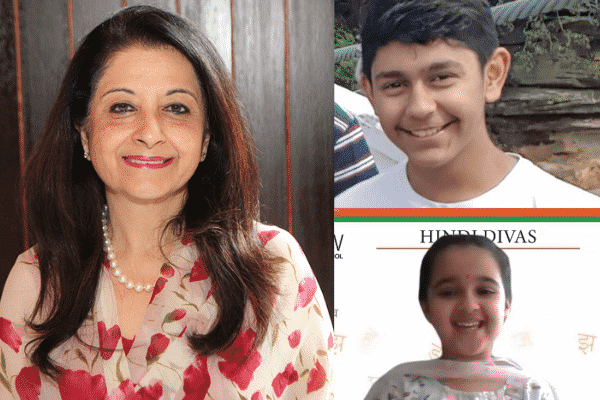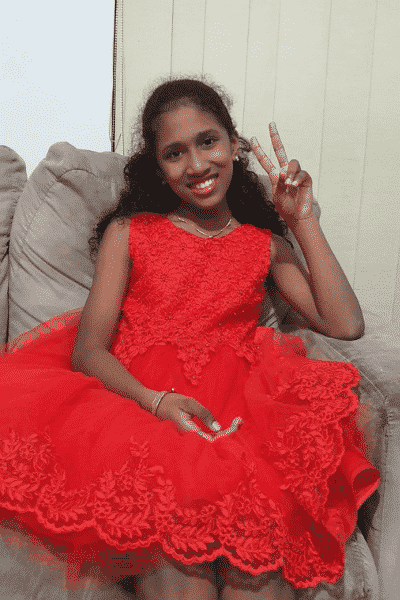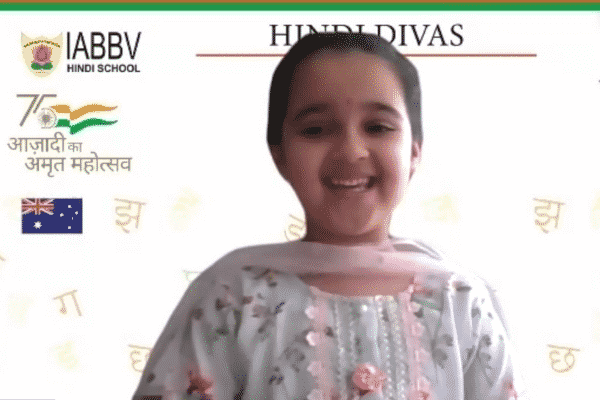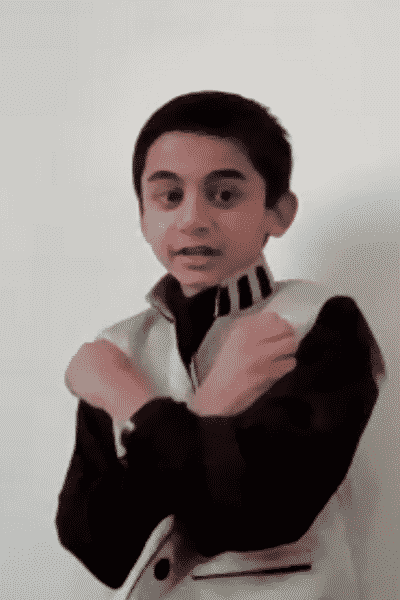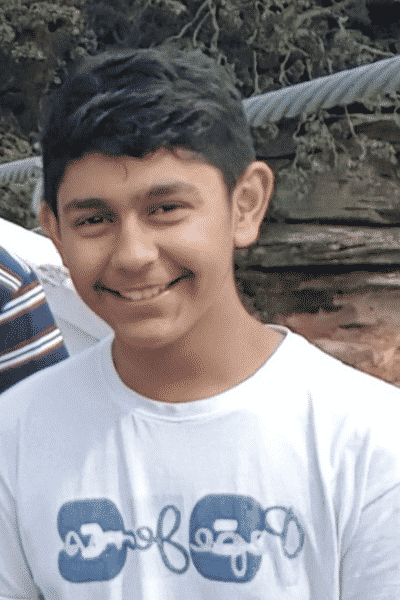A record 125 students, across year groups from Kindy through to Year 12, participated in the 4th Vimla Luthra Memorial Hindi Poetry Contest this year. It was held by Sydney’s leading Hindi school IABBV as part of its annual Hindi Divas celebration.
Organised virtually again this year, the students waited their turn patiently at home, popping up on screen as prompted, to deliver their presentations.
Students Mannat Kaur, Shaurya Gupta, Charlotte John Abu and Rachit Saini claimed the honours in their age categories Kindy-Year 1, Yr 2-4, Yr 6-7 and Yr 8-12 respectively.
Taking home special awards for presenting their own works were students Izaan Ali, Zara Mascarenhas, Prisha Ruikar and Rizul Gulati in their age categories.
Leading Hindi academics Dr Peter Friedlander and Dr Ian Woolford judged the students’ presentations along with community litterateurs Kusum Chaudhary, Santram Bajaj, Rekha Rajvanshi and Saba Zaidi Abdi, and teachers Indu Sood and Kavita Sood, besides yours truly. Judges were unanimous in their conclusion that the standard of the students’ presentations continues to rise year on year.
“I’m very proud of all our students, and our teachers,” Mala Mehta, Principal and Founder of IABBV Hindi School told Indian Link later. “It’s been a long lockdown, but we’ve succeeded in keeping motivation high and commitment sustained.”
READ ALSO: 3rd Vimla Luthra Memorial Hindi Poetry Contest
Indeed, if last year the favourite theme in the pick of the poems was prakriti (nature), no doubt due to being stranded indoors, the overarching theme this year seemed to be manobal (fortitude).
Poet Narendra Verma’s piece Tum chalo to sahi was presented a few times and resonated strongly.
Actor Amitabh Bachchan’s Guzar jayega, waqt hi to hai, seemed to provide solace to many other students.
Check out these additional poem titles, and you’ll get the drift: Ek subah hogi, Manzil door nahin, Kadam milakar, Koshish kar, Koshish karne walon ki, Hasna hi jeevan hai, Badhe chalo.
There’s no denying that the pandemic zeitgeist has trickled down to the youngest members of our society.
In fact, there were more than a few poems titled ‘Corona’.
“Zindagi (life) was a theme we floated this year,” Mala revealed, “as a way of encouraging children to contemplate on their own lives at this time of strife.”
They rose to the challenge beautifully, with many young poets choosing to create their own pieces. And so we heard Jeevan ki khushiyan, Anmol jeevan, Jeevan moolya, Jeevan ek nadi, Zindagi ke nazaare, Zindagi mast hai, Pyaari pyaari zindagi, Jeevan ke badlaav, Muskurati zindagi.
READ ALSO: The future of Hindi is safe at La Trobe
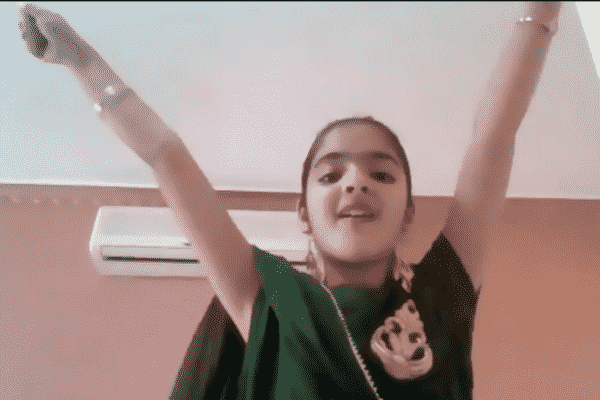
Mala’s capacity to motivate must surely be her biggest strength. This is evident not only in increasing numbers at IABBV, but also in a growing number of teachers willing to volunteer there. (Wonderful to see a former student Ria Chanana come on board as a teacher this year).
Mala’s current passion is in spreading the word about Hindi and about languages in general. The Hindi Diwas event attracted attendance from a variety of stakeholders including those in the education sector – school principals, teachers, teachers of other languages such as Chinese, and officials from the NSW Education Standards Authority.
“Ten schools across the Sydney region offer Hindi currently,” Mala observed. “But there is scope for more. Language learning is not mandated in NSW especially at the primary level, and this is something we are looking to change.”
Also attending were state and federal parliamentarians including three ministers; councillors from local government; the Consul General of India (Sydney), university academics, and community partners.
Besides the poetry on parade, the guests also got a glimpse of students’ other work, including a play, a quiz, and some in-language vaccine messaging.
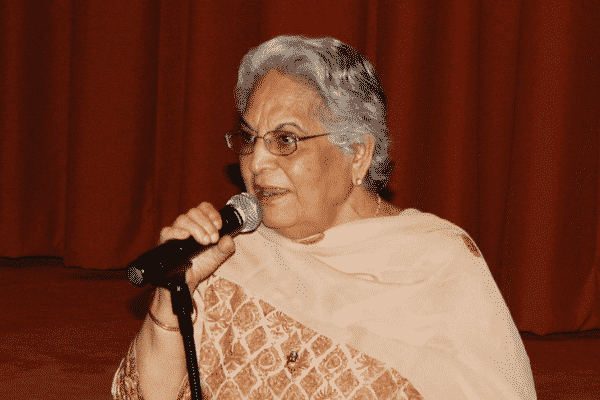
As IABBV Hindi School gets set to mark a major milestone next year, its 35th, students and ex-students can perhaps get together to sing the school song with gusto: Hum honge kaamyaab (We shall overcome).
Yet it seems the words from another piece, so popular this year, might as well have been Mala’s anthem when she first launched IABBV:
Raah main mushkil hogi hazaar
Tum do kadam badhao to sahi
Ho jaayega sapna saakar
Tum chalo to sahi.
Equally, these words might well have described Vimla Luthra (1933-2017), after whom IABBV’s Hindi poetry contest is named. As her son Pawan related to students at the end of the event, she took up poetry only very late in life. Yet her work continues to inspire many in our community to this day, including IABBV students, some of who chose her work to recite on this particular occasion.
READ ALSO: Hindi Diwas at IABBV Hindi School
Link up with us!
Indian Link News website: Save our website as a bookmark
Indian Link E-Newsletter: Subscribe to our weekly e-newsletter
Indian Link Newspaper: Click here to read our e-paper
Indian Link app: Download our app from Apple’s App Store or Google Play and subscribe to the alerts
Facebook: facebook.com/IndianLinkAustralia
Twitter: @indian_link
Instagram: @indianlink
LinkedIn: linkedin.com/IndianLinkMediaGroup



